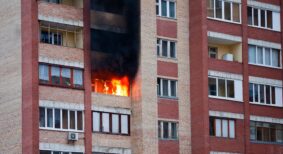A new landlord licensing system could be hitting the Toronto apartment industry as early as January 2017. Representatives of tenant advocacy group ACORN discussed the idea with city officials at a Municipal Licensing and Standards Committee meeting on Thursday May, 19th, and voted to move ahead with the plan.
Similar to the city’s DineSafe restaurant licensing system, a “multi-residential rental property licence” would entail annual inspections of building common areas and require landlords to develop detailed plans for maintenance, cleaning and pest control.
In total the program would affect about 3,300 rental buildings with 10 units or more, and three storeys or higher.
Aspects of the program might include:
• prohibiting landlords with outstanding work orders from applying for rent increases or leasing vacant units
• Letting tenants pay rent into an account set up by a court or local housing department, instead of to their landlord, until repairs are done.
• Fining landlords who don’t comply with work orders up to $100,000.
According to the group, there has been a history of non-compliance with city work orders under the current inspection system, and a lot of work needs to be done to bring rental buildings up to an acceptable standard. Since 2008, more than 58,000 deficiencies were found in the 1,046 apartment towers that were audited and more than 4,446 work orders were issued.
The proposed program, at an estimated cost of $3.5 million, would be recovered through an annual licensing fee of $12 to $15 per unit.
If the landlord licensing framework is approved by city council in June a draft bylaw could be ready by next fall and in place by early 2017.





So this legislation would, of course, apply to all government housing programs as well? Consider that the government has just bailed out the affordable housing sector with $270 million in the federal budget (but nothing for the private sector) because this sector couldn’t meet the same standards that the government imposes of the private sector. Talk about hypocrisy, double standards, and vote pandering.